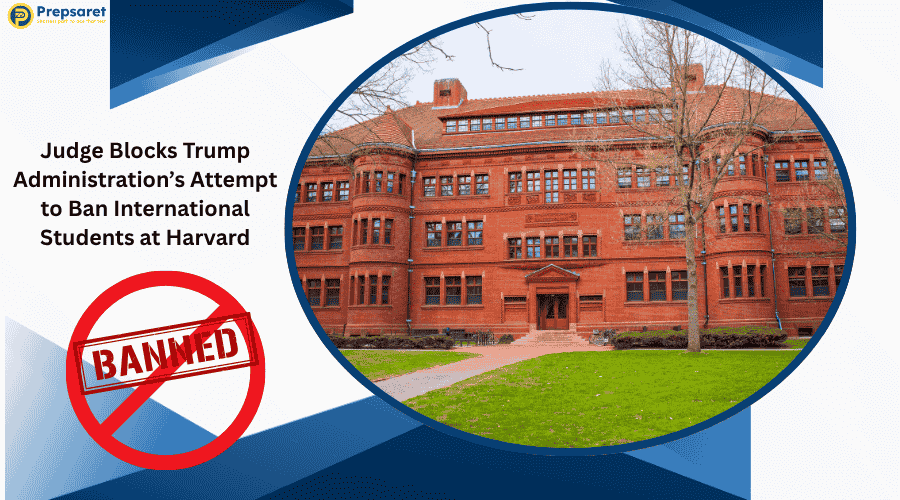Summary:
- A federal judge extended a block on the Trump administration’s order revoking Harvard’s ability to enroll international students.
- Harvard argues the administration’s actions violate First Amendment protections and threaten the university’s academic mission.
- The legal battle may set a major precedent on government influence over U.S. universities and their international programs.
A federal judge on Thursday halted the Trump administration’s effort to revoke Harvard University’s ability to enroll international students, granting the Ivy League institution temporary relief in an increasingly heated legal standoff with the federal government.
U.S. District Judge Allison D. Burroughs, who previously issued a temporary restraining order, said she intends to grant a preliminary injunction, allowing Harvard to continue accepting international students while litigation proceeds. The ruling came just as thousands of graduates, including many international students, attended Harvard’s commencement ceremony, a symbolic backdrop to the courtroom drama unfolding a few miles away.
Judge Sides With Harvard
The court’s decision follows a May 22 order by the Department of Homeland Security (DHS) to decertify Harvard under the Student and Exchange Visitor Program (SEVP), effectively blocking the university from enrolling non-U.S. students. The administration cited concerns over compliance, campus safety, and alleged antisemitism, demanding Harvard submit documents within 30 days to rebut the decertification.
Homeland Security Secretary Kristi Noem defended the action on social media, saying, “Harvard’s refusal to comply with SEVP oversight was the latest evidence that it disdains the American people and takes for granted U.S. taxpayer benefits.” She added that the university must reform in order to continue participating in federal academic programs.
Harvard quickly challenged the move in court, arguing the administration was targeting the university for ideological reasons, in retaliation for constitutionally protected speech and diversity initiatives. The school maintains that over 25% of its student body is composed of international students, including nearly 60% at its Kennedy School of Government.
Also in the News:
- Trump Administration Moves to Terminate All Remaining Federal Contracts With Harvard
- Can you go to college with a GED
Broader Implications for U.S. Universities
Legal scholars say the case raises pivotal constitutional questions: Can the federal government use funding and visa policy to control colleges‘ and universities’ speech, hiring, or admissions? According to Aram Gavoor, a former DOJ attorney and associate dean at George Washington University Law School, the case could ascend rapidly through the courts, potentially reaching the U.S. Supreme Court.
During the court hearing, Harvard President Alan Garber addressed graduates, stating: “Welcome members of the class of 2025 — from down the street, across the country, and around the world. Around the world. Just as it should be.” His remarks drew applause and highlighted the university’s commitment to global academic inclusion.
Harvard spokesperson Sarah Kennedy-O’Reilly confirmed that the injunction “will allow the university to continue enrolling international students and scholars while the case moves forward.” She reaffirmed Harvard’s dedication to protecting the rights and presence of its global academic community.

